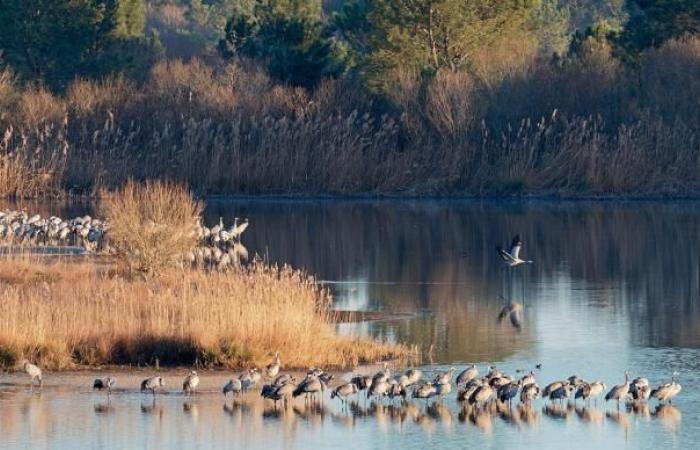
Updated on 12/11/2024
The Ministry of Agriculture, Food Sovereignty and Forestry published a decree on November 8, 2024 raising the level of epizootic risk with regard to highly pathogenic avian influenza (HPAI) to the maximum.
This decision is based on the strong and persistent dynamic of circulation of the virus in wild avifauna in Europe, particularly migratory ones, in the migration corridors crossing the metropolitan territory. These migrations, which have already begun, are intensifying and the new virus currently affecting migratory wild birds has already been detected in 2 outbreaks in backyards in Pas-de-Calais and Saône-et-Loire.
Furthermore, since August, 10 outbreaks have been declared in commercial breeding.
Reinforced prevention measures are justified as measures to control the introduction of HPAI viruses making it possible to reduce or eliminate the interface between migratory or native wild birds and domestic birds.
The transition to high risk generalizes the following measures across the entire metropolitan territory:
- Cloistering or protection by nets of birds kept in establishments
-
Shelter in a closed building, with protection of feeding and watering, for birds in establishments ≥ 50 poultry. Specific provisions are provided for in article 8 of the decree of September 25, 2023 for foie gras palmipeds, for broiler chickens, guinea fowl and turkeys raised outdoors or in buildings of less than 120m2 or in a self-sufficient short circuit , for outdoor laying hens and for game birds.
This sheltering is also justified for vaccinated ducks because vaccination cannot prevent the introduction of the virus in all cases.
- Mandatory equipment for vehicles intended for the transport of waterfowl ≥ 3 days using tarpaulins or equivalent preventing any significant loss of feathers and down by a full or empty truck.
- Prohibition of gatherings of poultry and captive birds. Exceptions are provided for in article 18 of the decree of September 25, 2023.
- ban on racing pigeon competitions until March 31, 2025.
- ban on the release of Anatidae game birds.
- Movements of game birds are subject to a favorable clinical examination and negative virological screening beforehand.
- Restrictions on the movements of calling birds for hunting are provided for in article 14 of the order
biosecurity measures can be viewed on the website: https://agriculture.gouv.fr/influenza-aviaire-les-mesures-de-biosecurite-pour-les-operateurs-professionnels-et-les-particuliers
All applicable measures are described in the ministerial decree of 09/25/2023
Order of September 25, 2023 relating to surveillance, prevention, control and vaccination measures against highly pathogenic avian influenza (HPAI) – Légifrance
Maps of ZRD and ZRP are available on the website of the Ministry of Agriculture:
Avian influenza: the situation in France | Ministry of Agriculture, Food Sovereignty and Forestry
For any additional information
https://agriculture.gouv.fr/tout-ce-quil-faut-savoir-sur-linfluenza-aviaire
REMINDER: Consumption of meat, foie gras and eggs – and more generally any poultry-based food product – presents no risk to humans.





